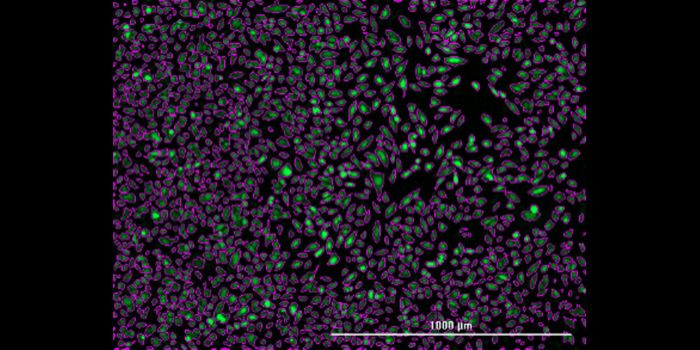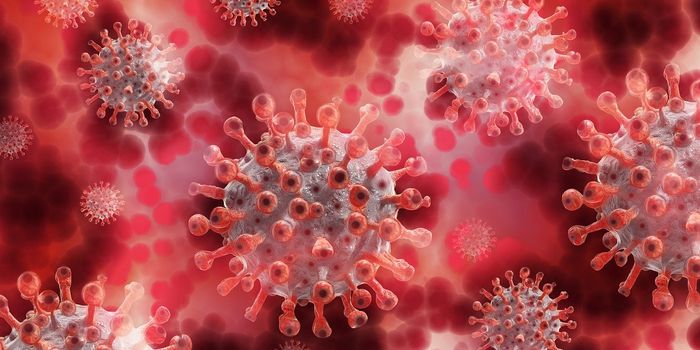Natural Molecule May Aid in Treatment of Iron Disorders
Iron plays a crucial role in human health, and it is linked in various ways to some diseases. New work could aid in the treatment of such disorders, like a lack of iron that results in anemia or an excess of iron, which can cause liver disease. Reporting in Science, a multi-institutional collaboration that included researchers from University of Illinois, Dana-Farber/Boston Children's Cancer and Blood Disorders Center, Brigham and Women's Hospital and Northeastern University, has found a naturally-occurring small molecule, hinokitiol, that can reverse both an overload and a deficiency of iron in animal models. Learn more from the video.
"Without iron, life itself wouldn't be feasible," said Dana-Farber/Boston Children's physician Barry Paw, MD, PhD, the co-senior author of the new Science report. "Iron transport is very important because of the role it plays in oxygen transport in blood, key metabolic processes and DNA replication."
Iron is critically important but requires transporters to perform its required functions. Dysfunction in those transporters, which move iron across cell membranes, leads to many of diseases associated with iron.
"Like most things in life, too much or too little of a good thing is bad for you; the body seeks homeostasis and balance," Paw explained. "Amazingly, we observed in zebrafish that hinokitiol can bind and transport iron inside or out of cell membranes to where it is needed most."
Red blood cells are the number one type of tissue in the body that need iron, so if iron-transporting proteins are missing, anemia can result," continued Paw. "Iron-deficiency anemia is the most common nutritional problem in the world."
Conversely, too much iron can result in damage to tissues, DNA and serious organ problems in the heart, liver and pancreas. Such a disorder could be hereditary or because of frequent blood transfusions that often accompany treatments for chronic medical conditions.
"If you're sick because you have too much protein function, in many cases we can do something about it. But if you're sick because you're missing a protein that does an essential function, we struggle to do anything other than treat the symptoms. It's a huge unmet medical need," said the co-senior author of the work, Martin Burke, MD, PhD, of the University of Illinois.
The molecule, hinokitiol, is found in Japanese cypress tree leaves and cedar wood. Burke's team discovered that hinokitiol was able to transport iron across cell membranes in vitro; they contacted Paw and others to test determine how effective it was in animal models.
The investigators found that hinokitiol molecules can both bind iron atoms and move them across the membranes of cells and mitochondria, even when the typical proteins that carry out those functions aren’t available.
"If there is a genetic error, cell membranes won't open for iron to come across," explained Paw. "But when you administer hinokitiol, it combines with iron and ferries it into, within or out of the cells and mitochondria where iron is needed. Therefore, it's a very interesting small molecule that has a lot of therapeutic potential!" Paw concluded.
See more about the findings in the video.
Sources: AAAS/Eurekalert! via Boston Children’s Hospital, Brigham and Women's Hospital, University of Illinois, Science


![Master Lab Weighing: Accuracy, Compliance & Audits [eBook]](https://d3bkbkx82g74b8.cloudfront.net/eyJidWNrZXQiOiJsYWJyb290cy1pbWFnZXMiLCJrZXkiOiJjb250ZW50X2FydGljbGVfcHJvZmlsZV9pbWFnZV85MWRmZmRjMDIwNDBlMWJjMzYwN2ZiYWY2ZjI4ZGMzYzBmZGMwZGMyXzkxOTcucG5nIiwiZWRpdHMiOnsidG9Gb3JtYXQiOiJqcGciLCJyZXNpemUiOnsid2lkdGgiOjcwMCwiaGVpZ2h0IjozNTAsImZpdCI6ImNvdmVyIiwicG9zaXRpb24iOiJjZW50ZXIiLCJiYWNrZ3JvdW5kIjoiI2ZmZiJ9LCJmbGF0dGVuIjp7ImJhY2tncm91bmQiOiIjZmZmIn19fQ==)





